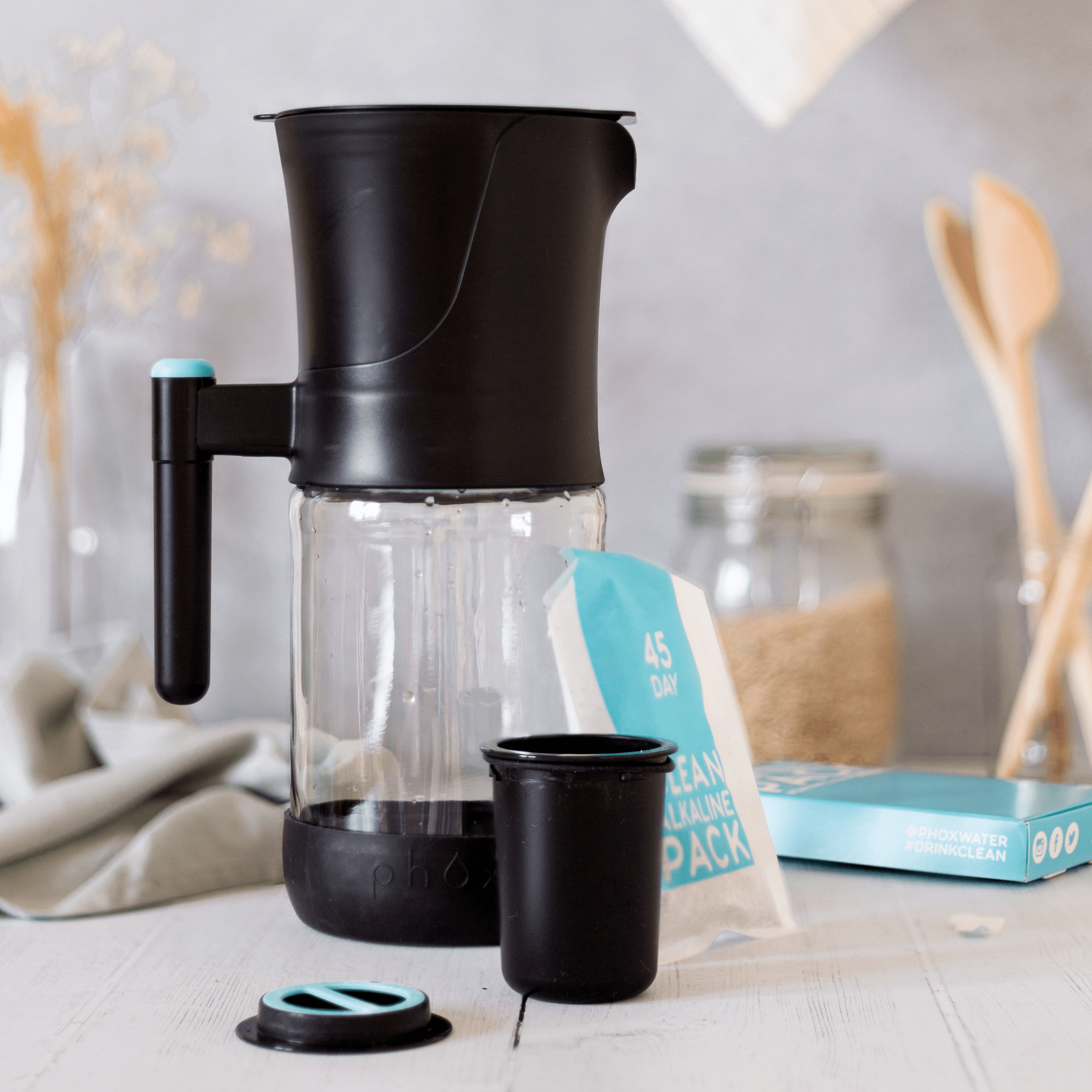How Can I Improve My Sleep?
Do you know what the best thing about sleep is?
It's the basic foundation of good health.
Why?
Because sleep deprivation can be the root cause of a range of health issues that permeate all areas of our lives.
It is estimated that 1 in 3 people in the UK are affected by insomnia and 38% of adults say they are not getting the right amount of sleep.
These statistics highlight how sleep is one of the most undervalued parts of our everyday lives.
Sleep has become stigmatised by laziness, and so often in the hive of busy contemporary lifestyles - consumed by technology and information overload - it is has become a badge of honour to sleep less. People often feel validated that they're working so hard that they only managed 3 hours last night, but it's becoming ever clearer how damaging this can be for our health.
That's why we've put together a list of 5 ways to improve your sleeping pattern and make sure you stay clear of the potential side effects of sleep deprivation.
1. Sort Out Your Routine

The most vital thing you can do to help your body is sleep wise is to get into a regular routine, to align with your circadian rhythm.Your circadian rhythm is your internal body clock that regulates your sleep/wake cycle.
You've probably noticed that you have dips in energy throughout the day. Generally, for most adults, the sharpest energy dips are between 2am-4am and 1pm-3pm. That wave of tiredness that hits straight after lunch is related to your circadian rhythm.
Now, if your sleeping pattern is already perfectly in tune you may seldom notice these drops in energy.
However, an irregular sleeping pattern or a general lack of sleep can throw off your sleep/wake cycle meaning you will experience dips in energy at various times throughout the day.
You may be thinking 'why should I have a regular bedtime, I'm not 10 years old?' While you may not be a child anymore, did you know that just one night of 3-4 hours sleep can reduce the 'natural killer' cells in your body by 70 per cent?
2. Phone Curfew

It may sound radical, but ditching your mobile phone 30 minutes before bed can have a great impact on your sleep quality.
The blue light that comes from your phone screen triggers the same response in your brain as daylight. Chemically, this suppresses melatonin. Which as we've already discussed, interrupts your circadian rhythm by stimulating your brain when you should be trying to sleep.
Setting your phone to automatically enter 'night-mode' at sunset to reduce the blue light will help but no light at all is best.
You'll find it much easier to get to sleep each night if you have a routine which signals to your brain that it's time for bed. Putting your phone to bed 30 minutes before yourself will help you start to wind down towards a comfortable, restorative night's rest.
3. Lights Out

Closely related to your new phone curfew is the importance of turning off bright lights at least 30 minutes before bed.
All artificial light acts as a stimulant for your brain and can be subtly disruptive both when trying to get to sleep and stay asleep.
In much the same way as your phone screen, any artificial light will inhibit melatonin secretion and decrease your chances of a good night's sleep.
If you don't quite believe how powerful this is, then maybe some research will help underline it.
Research from Cornell University found that shining an artificial light the size of a 10p coin on the back of someone's knee is enough to disturb their sleep cycle.
4. Hydrate

You might have known that hydration would be a factor in sleep quality! Much like sleep itself, hydration is a vital foundation for good health.
Studies have shown that dehydration can be a factor in a range of sleep-related problems, from insomnia to sleep apnea.
You won't be surprised to hear that the primary victim of dehydration in terms of sleep is, you guessed it - melatonin. If your body is not adequately hydrated throughout the day and at night, then it can suffer from a lack of essential amino acids. This puts you at risk of melatonin deficiency which we know disrupts your body's natural sleep cycle.
Another effect of dehydration on your sleep quality is that it can exacerbate snoring problems. Making sure that you're properly hydrated can lubricate your airways and the soft tissue in your throat to help tone down the snoring which can be so disruptive to you (and your partner's!) sleep.
5. Caffeine Curfew

We all love a nice coffee.
There's a reason that it's the second top-selling commodity in the world.
But when it comes to sleep, coffee consumption must be carefully managed. Caffeine's popularity is obviously due to its powers as a stimulant and this stimulation can disrupt your sleep no end if you don't consume it within reasonable timeframes.
Did you know that if you consume 200mg of caffeine, eight hours later there's still 100mg in your system?
Then eight more hours later, there's still 50mg in your system.
This means that consuming any substantial amount of caffeine after midday is almost certain to interfere with your sleep quality at some level.
Now of course, if you're currently drinking five cups per day it doesn't make sense to drop down to one cup starting tomorrow because there would be a pretty severe tiredness crash.
However, if you have any problems sleeping it is worth reassessing your coffee consumption and phasing out excessive quantities.
Top Tip:
If you want to dive in deeper and learn more about how to maximise the power of sleep check out the book 'Sleep Smarter: 21 Essential Strategies to Sleep Your Way to A Better Body, Better Health, and Bigger Success' by Shawn Stevenson.



